-
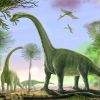 +15 +1
+15 +1Dinosaur Hatchery With 92 Nests And Over 250 Eggs Uncovered In India
The recent findings suggest the titanosaur — one of the largest dinosaurs in the world — may have close ties with modern-day crocodiles and birds.
-
 +17 +1
+17 +1Peace accord in Colombia leads to discovery of new dinosaur species
Researchers dubbed it Perijasaurus lapaz after the mountainous region and the Spanish word for “peace.”
-
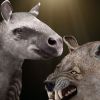 +13 +1
+13 +1How mammals won the dinosaurs' world
Sixty-six million years ago, our ancestors lived through the most violent event in the Earth's history. How did small, insignificant mammals survive a doomsday asteroid?
-
 +19 +1
+19 +1Rise of the dinosaurs traced back to their adaptation to cold
Covering of feathers left them able to cope when other creatures died off in mass extinction event, scientists say
-
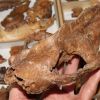 +15 +1
+15 +1Mammals’ bodies outpaced their brains right after the dinosaurs died
Fossils show that mammals’ brains and bodies did not balloon together. The animals’ brains grew bigger later.
-
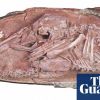 +19 +1
+19 +1Scientists find perfectly preserved dinosaur embryo preparing to hatch like a bird
At least 66m-year-old fossil discovered in southern China reveals posture previously unseen in dinosaurs
-
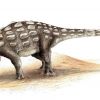 +13 +1
+13 +1Scientists discover new dinosaur species with ‘bizarre’ spiky armour
Spikes in this ankylosaur is peculiar since it is fused to the rib bones and not growing out from skin
-
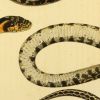 +26 +1
+26 +1"Creative destruction" allowed snakes to inherit the Earth
Scientists discover how snakes survived and diversified after the extinction event that killed off the majority of species on Earth, including dinosaurs.
-
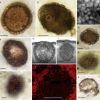 +12 +1
+12 +11 Billion-Year-Old Fossil Could Be The Oldest Multicellular Animal on Record
A teeny tiny fossil found in the Scottish Highlands could be a missing link in the evolutionary history of animals.
-
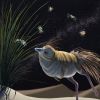 +4 +1
+4 +1Bird-like dinosaur could hunt in total darkness, pointing to thriving prehistoric 'nightlife' | CBC News
Under the cover of darkness in desert habitats about 70 million years ago, in what is today Mongolia and northern China, a gangly looking dinosaur employed excellent night vision and superb hearing to thrive as a menacing pint-sized nocturnal predator.
-
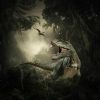 +14 +1
+14 +1Asteroid dust found at Chicxulub Crater confirms cause of dinosaurs’
Although an asteroid impact has long been the suspected cause of the mass extinction 66 million years ago, researchers think new evidence finally closes the case.
-
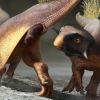 +20 +1
+20 +1This fossil reveals how dinosaurs peed, pooped and had sex
We know a lot about dinosaurs -- what they looked like, what they ate and what killed them off -- but no fossils have definitively preserved two dinosaurs in the act of mating.
-
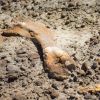 +16 +1
+16 +1Boy, 12, discovers rare dinosaur skeleton
He was hiking with his father in Alberta, Canada, when he stumbled upon the Hadrosaur remains.
-
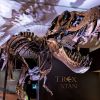 +16 +1
+16 +1Stan the T. rex sells for record $32 million at auction
Buyer unknown, but paleontologists worry researchers will lose access
-
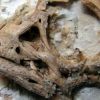 +4 +1
+4 +1Fossil Reveals ‘One of the Cutest Dinosaurs’ Ever Found
While many fossils have been flattened by time and the elements, a titanosaur found in an egg was preserved in three dimensions.
-
 +4 +1
+4 +1New dinosaur related to T. rex discovered
Four bones found at Shanklin belonged to a new species of theropod dinosaur, a study finds.
-
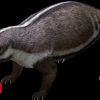 +14 +1
+14 +1'Crazy beast' lived among last of dinosaurs
The discovery that the badger-like animal lived alongside dinosaurs challenges ideas about mammals.
-
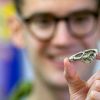 +18 +1
+18 +166-million-year-old ‘wonderchicken’ offers lesson in resilience
When Daniel Field first saw it, his shouts echoed down the hall. “That moment was probably the most shocking moment of my life, certainly the most shocking moment of my scientific career,” he says. The chunk of rock didn’t look like much. It was small and uninspiring, about the size of a deck of cards, says Dr. Field, a paleontologist at the University of Cambridge. But fragments of birdlike bone poked out of it, and it was from the last days of the dinosaurs, so it bore further scrutiny.
-
 +3 +1
+3 +1800,000 Years Ago, a Meteor Slammed Into Earth. Scientists Just Found the Crater.
Scientists knew the impact happened; they just didn't know where.
-
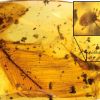 +4 +1
+4 +199-million-year-old ticks sucked the blood of dinosaurs
Samples caught in Burmese amber provide clues to the evolution of the parasites and their hosts
Submit a link
Start a discussion




















